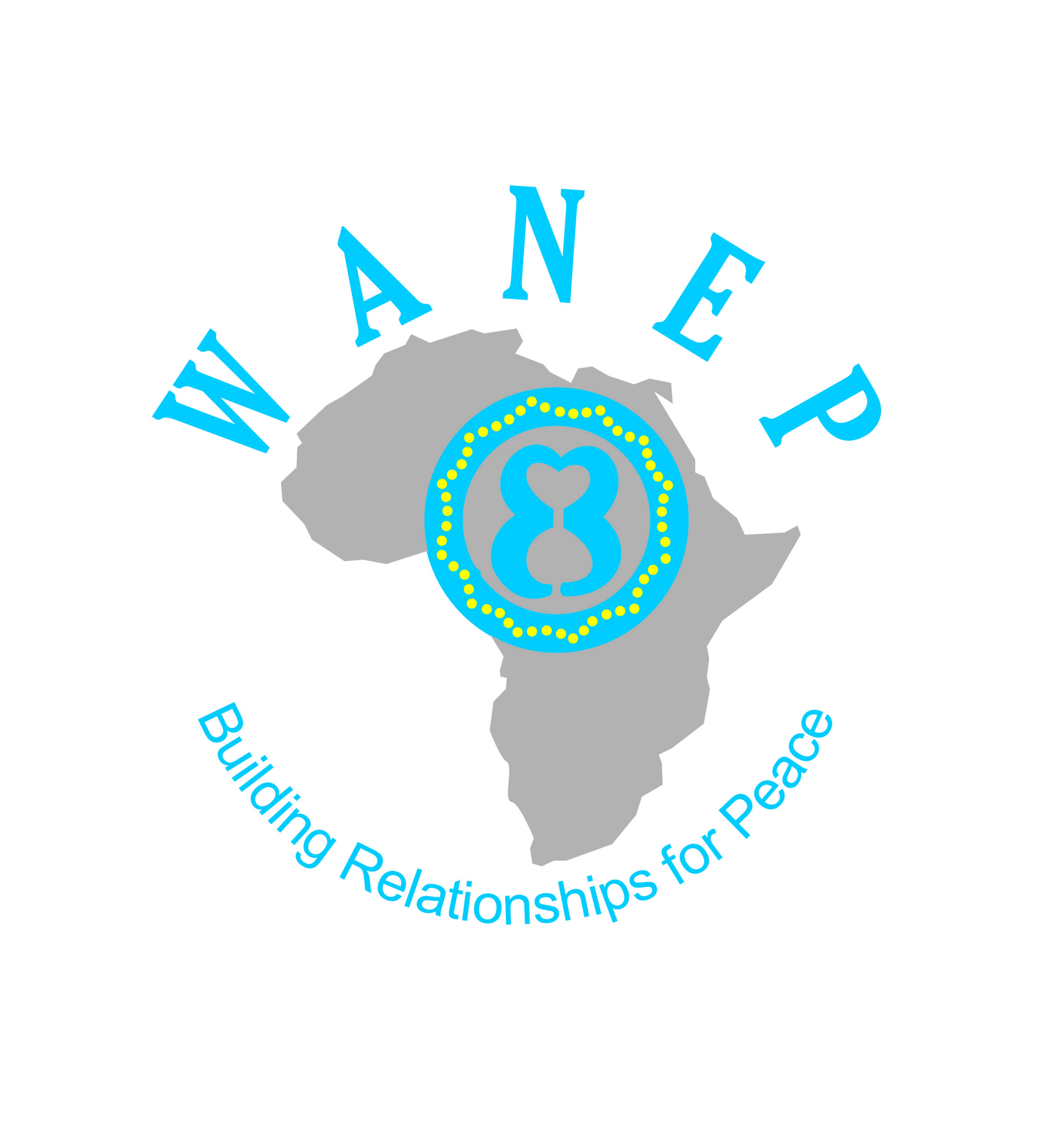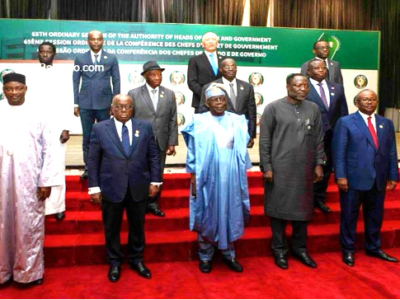Introduction
At the beginning of 2024, Burkina Faso, Mali and Niger, organised under the Alliance of Sahel States (AES), announced their withdrawal from the Economic Community of West African States (ECOWAS). According to the states, the withdrawal is immediate, but this will take one year to take effect based on the provisions of Article 91 of the 1993 Revised ECOWAS Treaty. Prior to the recent summit of the ECOWAS Heads of States on 7th July 2024, the three military junta leaders of the AES gathered for the first joint summit. On this occasion, they formed a “Confederation of Sahel States“. The treaty that establishes the Confederation, signed by the head of the Nigerian transitional government, Abdourahamane Tchiani, the transitional president of Burkina Faso, Ibrahim Traore, and interim president of Mali, Assimi Goita, represents an initiative for a greater integration between the three Sahel states. Therefore, the Confederation signifies a step forward in the interstate cooperation, after forming the AES in September 2023 – a diplomatic initiative that guarantees the independence of the three countries in relation to regional or international bodies and aims for collective defence against terrorism, organised crime, armed rebellion or other threats to the founding states’ sovereignty and territorial integrity . Since ECOWAS member countries enjoy numerous benefits of membership, including economic cooperation through joint production enterprises, common market, liberalised custom policies, free movement of persons, goods and capital as well as security-related cooperation through the ECOWAS Standby Forces (ESF), exiting the Community implies numerous consequences both for the three countries and the regional bloc. This article analyses the implications of the exit of the AES countries focusing on the security and economic dimensions and what can be done to minimise the consequences should they occur.
Exit on which grounds?
Niger, Mali and Burkina Faso’s decision to exit ECOWAS partly stems from their discontent of the sanctions imposed by the Community against their respective countries after the military coups. Not only did these sanctions negatively impact economic cooperation between ECOWAS member states by, among other things, increasing the costs of trading, they have also endangered the integration process in the region and given rise to humanitarian crises. However, the so-called ‘’Sahelexit’’ did not imply immediate lift of the economic and diplomatic sanctions. Contrarily, it has lead to a more vulnerable security environment and undermined the already unstable international cooperation mechanisms and strategies. Yet, for the humanitarian purposes and in order to establish an environment favourable for constructive dialogue with the AES states, ECOWAS announced lifting sanctions in February 2024. Other reasons for leaving, as claimed in the AES’ joint statement, are absence of ECOWAS’ support in these states’ fight against threats from jihadist groups as well as the influence of Western governments especially France on the Community. The latter reason, which originates from the already-fragile relations between the West and Niger, Mali and Burkina Faso together with their links to Russian private military companies (PMCs), only adds to the fears for the future stability of the region.
Security at stake: violence and terrorism in the region
ECOWAS has been a crucial player in managing various political crises and conflicts among its member states as well as consolidating peace and democracy through the adoption of the Protocol relating to the Mechanism for Conflict Prevention, Management, Resolution, Peacekeeping and Security in 1999 and the Supplementary Protocol on Democracy and Good Governance in 2001. Although, terrorism is one of the most pressing issues in the Sahel area, Mali, Niger and Burkina Faso, are especially in danger, as they are the epicentre of terrorist activities and humanitarian crisis. Since the military coups in the AES countries, acts of terrorism has continued unabated. Data from the WANEP National Early Warning System for example shows that between January and August 2024, over 673 armed attacks were recorded across Mali, Burkina Faso and Niger during battles between state security forces and armed groups. The 2023 Global Terrorism Index (GTI) report also mentioned the Sahel as the most impacted region, representing 43% of global terrorism deaths, 7% more than the previous year. The 2024 GTI report further indicated that the epicenter of terrorism has shifted out of the Middle East into the Central Sahel region, which now accounts for over half of all deaths from terrorism. Burkina Faso is reported to have suffered the worst impact from terrorism globally, with deaths increasing by 68% despite attacks decreasing by 17%. All these statistics points to a deteriorating security situation in the AES countries which requires collective regional action and cooperation to combat the threat.
As members of ECOWAS, the AES states are part of the multi-purpose ESF, composed of military, police and civilian staff of member states which is activated to intervene when required to restore peace and stability amid military coups and other challenges to national or regional security. However, withdrawing from ECOWAS implies exit from collective security frameworks like the ESF as well. Already, the isolationism policies of the three states have caused them to exit the G5 Sahel, an intergovernmental organization created to promote development, counterterrorism and security. Mali, Burkina Faso and Niger have also expelled non-African forces from their territories. At the end of 2023, Niger ordered withdrawal of the United States’ forces from their base in Niamey, French counter-terrorism troops and has ended the contract between the uranium supplier company and Europe by withdrawing a mining concession awarded to a French nuclear fuel company. At the same time, German Ministry of Defence has officially announced an end of their operations in Niger. Mali and Burkina Faso have also dislodged French troops as they perceived their missions to be a failure. Although, some of the AES countries are still part of the Accra Initiative, the Initiative has been in a comatose state since the military coups with limited ongoing counterterrorism activities.
Against this backdrop, AES states have joined their forces to fight terrorist groups and opted to open their doors to Russian military advisers, fostering close defence, diplomatic and business links with Russia. Since the coups in the three AES countries, cooperation with Russia to fight terrorism through the Private Military Companies (PMCs), Wagner Group, led by Russian oligarch Yevgeny Prigozhin until his death in 2023 has deepened. However, officials from the European Parliament have condemned Wagner Group, stating that their presence in the region ‘’runs counter to the objective of bringing peace, security and stability to the region’’. Although the AU and ECOWAS are yet to condemned the Wagner Group’s engagement in the AES countries, there is the African Convention for the Elimination of Mercenarism ( 1985) which prohibits states from allowing mercenaries into their territories. Yet, although Russia’s activities and interference in Niger, Burkina Faso and Mali are based on the promises to restore these states’ internal security, the reality on ground shows that the promises have not been fulfilled.
Given the limited capability of the AES countries and the shortfalls of the PMC support to counterterrorism efforts, the exit from ECOWAS can further aggravate the uncertainties regarding the internal security situation in these three states. The destabilised security can also spillover and potentially endanger neighbouring states especially in the Coastal countries of West Africa. Benin and Togo are already experiencing the spillover effects of the security crisis in the Sahel with recorded attacks by Sahel-based jihadist groups in their northern territories. On 4 June 2024 for instance, militants killed seven Beninese soldiers in Pendjari National Park.
 Photo 2: Global Upfront Newspaper
Photo 2: Global Upfront Newspaper
In addition, the humanitarian situation may also worsen should the exit happen given the potential restrictions on the free movement of goods, services and persons between the AES countries and ECOWAS member states. For instance, Benin and Niger have been in a dispute ever since ECOWAS lifted sanctions on Niger. Niger has refused to open its borders with Benin, in retaliation for supporting closed borders, thereby depriving the country of transit revenue. More importantly, intelligence and information sharing among the AES countries and ECOWAS member states to combat transnational organised crimes may weaken due to suspicions and potential collapse of existing regional frameworks of collaboration. However, the intensity of this problem would largely depend on the exit agreement signed between the AES countries and ECOWAS.
Economic consequences of the withdrawal
In December 2000, after giving a one-year notice of quitting its membership from ECOWAS, Mauritania was the first country to formally withdraw from the regional bloc. Despite the fact that this decision lacked an official rationale, analysts claim that Mauritania’s exit comes from its fear of undermined economic sovereignty by ECOWAS’ intention to shift to a monetary and customs union by initiating the introduction of a single currency. Mauritania’s exit from ECOWAS shows that the benefits of its membership in military alliance and entente within the Arab Maghreb Union (AMU), was not able to reduce the negative economic consequences of exiting ECOWAS. These consequences included, among other things, weakened functionality of Regional Trade Agreements (RTAs) ,which have led to decrease of the Community’s influence in the region. Thus, Mauritania’s shaky relations within AMU, economic trade-related issues that had a hindering effected on its internal security by giving way to illicit trade and corruption, have made its President Abdelaziz to renew links with the Sahel and ECOWAS. Re-entry negotiations happened in 2017, but were only limited to economic aspect of ECOWAS, as to preserve autonomy for decision-making processes on the movement of people on the state’s territory and avoid commitment to consolidate democracy.
The case of Mauritania’s incentives to rectify president Taya’s adverse decision to exit ECOWAS should serve as a specimen or a warning for the future economic challenges Mali, Burkina Faso and Niger could face. Due to their dependence on imported goods from the Gulf of Guinea, opting out of the ECOWAS’ free movement protocol will raise import and export expenses, decrease these states’ market competitiveness and negatively affect free movement of people and migration routes. Although AES does include common institutions and infrastructure which imply free movement of people within the three states’ territories, they simply cannot replace ECOWAS’ free movement and trade agreements. As an alternative to regional economic arrangements, Mali, Burkina Faso and Niger now depend on bilateral agreements, such as the one between Niger and Togo for maritime trade collaboration. Moreover, since ECOWAS states account for more than 50% of Malian imports, more than 21% of imports from Burkina Faso and 13% of imports from Niger, a definite increase of prices in their domestic markets will result in additional socio-economic pressure to their already poor economies.
Conclusion – Looking Forward
Being aware of the consequences of the AES exit, some states and organisations have started diplomatic efforts to keep the three central Sahel states in the Community. For instance Senegal, due to its good relations with AES states, is supporting the mediation process backed by ECOWAS to ensure Mali, Burkina Faso and Niger remain in ECOWAS. Additionally, Niger and Nigeria have also signed a bilateral agreement despite their initial rift after the ECOWAS sanctions at the end of August 2024, aimed at expanding cooperation through joint military operations, intelligence sharing and tactical coordination within the framework of the MNJTF. However, it is imperative to note that whether the AES countries choose to exit ECOWAS or rescind their decision by January 2024, the security and economic implications would remain inevitable. At best, their impact can be minimised should the three countries remain in ECOWAS due to the opportunities and advantages that comes with regionalism. In that regard, it is crucial for the AES countries and ECOWAS to work together to address the common security and economic challenges to promote peace and stability in the region. This can be done through cooperation/bilateral agreements should the AES countries exit and through regional interventions involving the deployment of the ECOWAS Standby Force to support counterterrorism operations should the central Sahel states reconsider their decision to exit the regional bloc.
Author

Nina Kurt
MA Student of Security, Intelligence and Strategic Studies at the University of Glasgow, UK and Research Intern at West African Network for Peacebuilding (WANEP)
Disclaimer: The views expressed in this publication are those of the author and not necessarily those of WANEP. While every attempt has been made to ensure that the information published is accurate, no responsibility or liability is accepted for any loss, damage or disruptions caused by errors or omissions whether such errors or omissions result from negligence, or any other cause.








Comments